I finished five books this month...
...Please snap
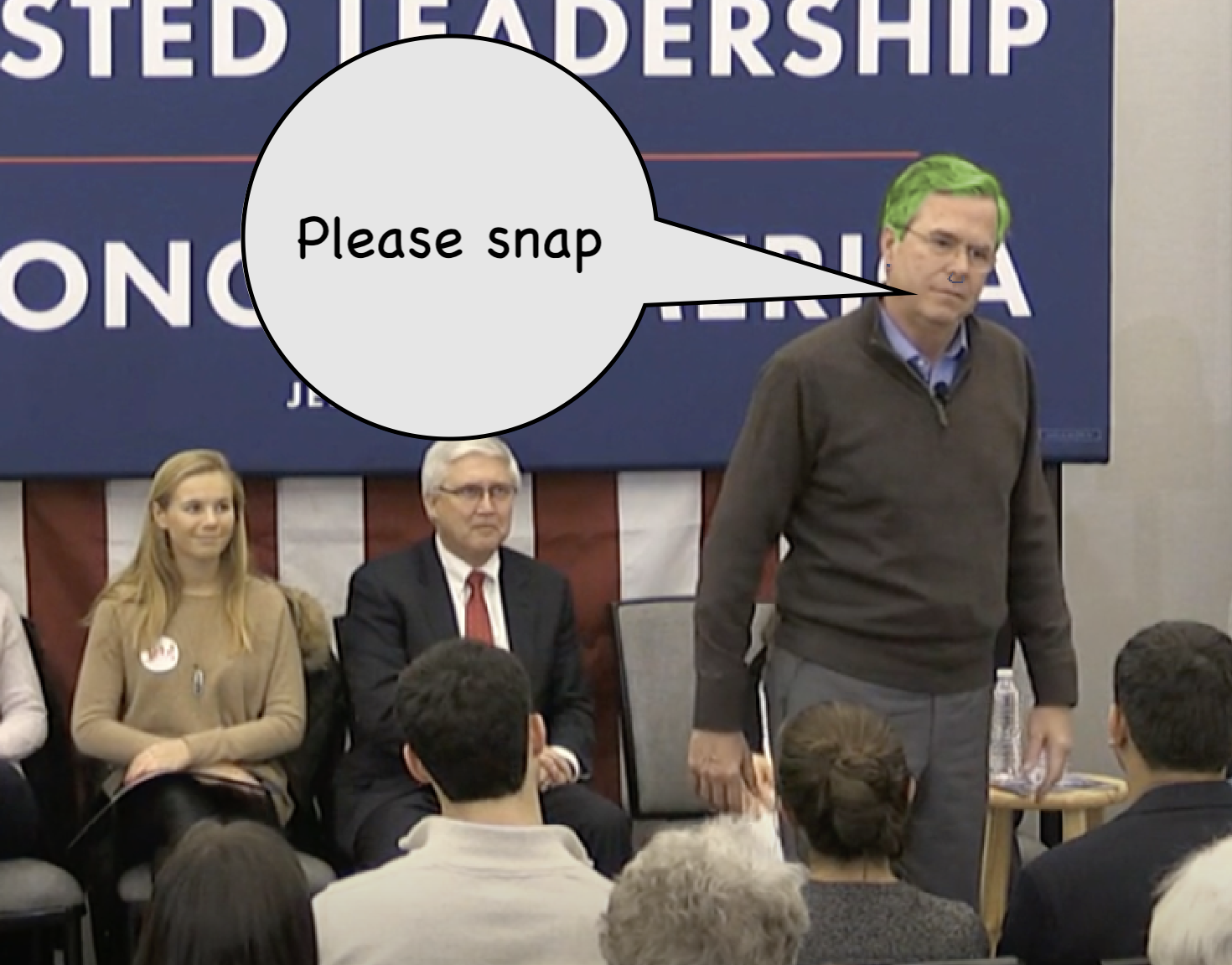
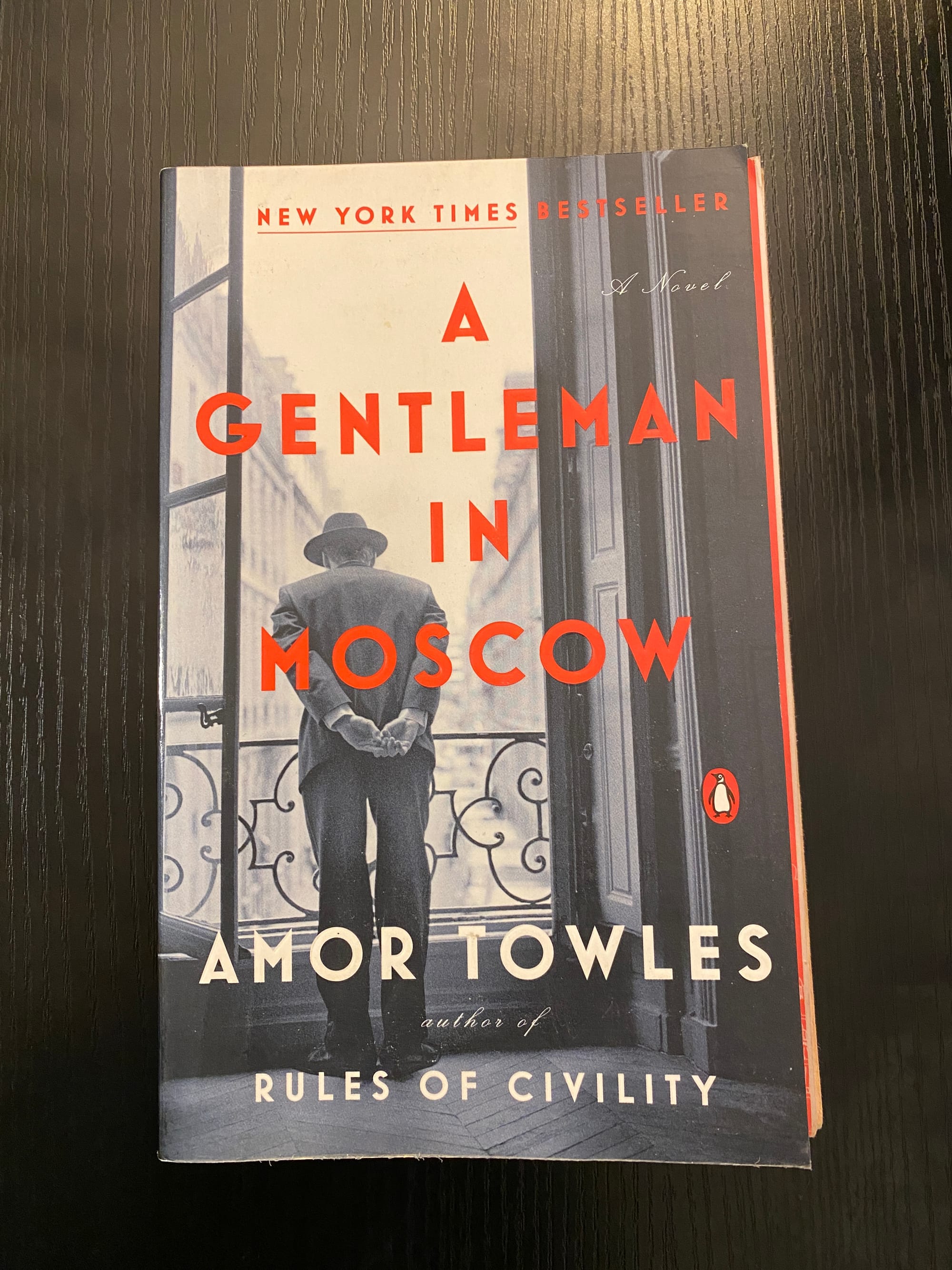
A Gentleman in Moscow by Amor Towles
Format: Paperback Book
Finished on 1/1/2025
What inspired me to read it? Hugh Howey and Tim Ferriss discussing Amor Towles in this podcast episode. Here's a snip of the exchange:
Ferriss: You recommended Lincoln Highway to me, which I thought was spectacular.
Howey: Anything by Amor. Amor Towles is one of the —
Ferriss: It’s just a book full of literary and narrative magic tricks. It’s wild.
Howey: He upsets me because he wasn’t even a writer as his primary career.
Ferriss: Oh, no. One of those.
Howey: Yeah, super successful investment banker. It’s like a Michael Lewis kind of story. Super successful in other ways,... and he’s just one of the smartest human beings I’ve ever met.
Brief: An Ode to the Haute. Count Rostov, a Former Person of Tsarist Russia, embarks on an epic journey despite never leaving the premises the Metropol hotel. Under house arrest, Rostov becomes both prisoner and philosopher, as Towles explores a paradox: how does one preserve dignity and purpose when society itself has declared war on distinction?
(Mis)Readings of the Climax (GIANT SPOILER):
In the climactic scene, Count Rostov retrieves a (literally Chekovian) gun out of the wall to force the hotel manager to burn his stash of employee surveillance. My Straussian and (potentially weak mis)readings of this scene:
1) Reversing the Purge
During Stalin's dictatorial ascendency (de-scendency?),the state didn't merely eliminate anyone deemed an oppositional force – it attempted to meticulously erased them from history itself, down to their images in photographs. In this scene, Count Rostov fires a warning shot that pierces a portrait of Stalin's face in a wonderful act of symmetry–now an oppositional force destroys the image of Stalin.
2) Rebuking Judgement Day
The Metropol's Manager, not-so-subtly nicknamed "The Bishop," is forced by Rostov to destroy his carefully curated catalog of transgressions (read: sins). This destruction denies any basis of Judgment the manager gets to pass on to these employees - preventing him from casting them to the hell that was Siberian political imprisonment. (Reminds me of this Bill Burr bit from his black-and-white special.)
3) Optimism triumphing over Pessimism
Possibly my projection, but humans have a tendency to archive others' failures, filing away each slight and stumble in the dusty cabinets of memory. And Count Rostov, the Gentleman that he is, provides the necessary reframing of this cynical 'file-keeping':
[In] alphabetical arrangement were files on members of the staff. On Arkady, Vasily, Andrey, and Emile. Even Marina. The Count needed no more than a glance at them to know their purpose. They were a careful accounting of human flaws, noting specific instances of tardiness, impertinence, disaffection, drunkenness, sloth, desire. One could not exactly call the contents of these files spurious or inaccurate. No doubt, all of the aforementioned had been guilty of these human frailties at one point or another; but for any one of them the Count could have compiled a file fifty times larger that cataloged their virtues.
In forcing the destruction of these records, Rostov doesn't just save his friends – he makes a statement about how we can choose to see humanity itself.
PS: I would be remiss if I didn't include a link to a Tyler Cowen/Marginal Revolution post on this topic, so here it is, with special attention paid to his first 5 points.
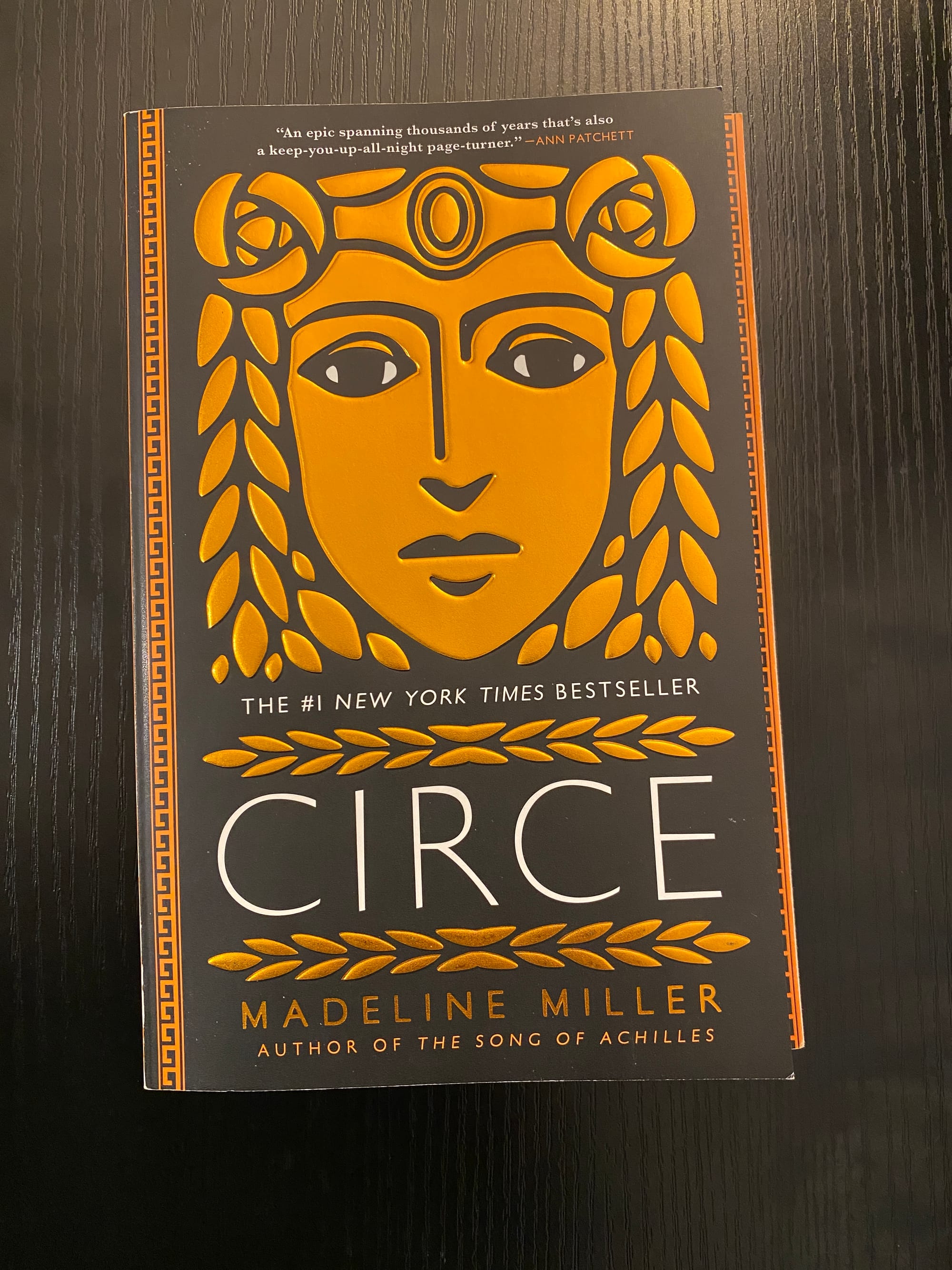
Circe by Madeline Miller
Format: Paperback Book
Finished on 1/6/2025
What inspired me to read it? Back to the well that is the Tim Ferriss Show podcast. Excerpt from the aforementioned episode with Hugh Howey:
Howey: Circe — have you read that?
Ferriss: I haven’t yet read it. I have seen so many people reading it. I’ve seen friends reading it.
Howey: It took me forever to read that. The prose in that book is so special and will make you a better writer.
One sentence summary:
A revisionist, feminist, (super)humanist take on Greek mythology with ethnobotany to boot.
Excerpts:
All heroes are fools, he liked to say. What he meant was, all heroes but me. So who could correct him when he erred? He had stood on the beach looking at Telegonus and believing him a pirate. He had stood in his hall and accused Telemachus of conspiracy. Two children he had had, and he had not seen either clearly. But perhaps no parent can truly see their child. When we look we see only the mirror of our own faults.
and this:
"At last when I could fight it no longer," Odysseus said, "I fell asleep. I did not feel them take the bag from my hand. It was the howling of the winds that woke me. They whirled out of the bag and blew us back as if we had never left. Every league undone. They think I grieve for their dead comrades, and I do. But sometimes it is all I can do not to kill them myself. They have wrinkles, but no wisdom. I took them to war before they could do any of those things that steady a man. They were unmarried when they left. They had no children. They had no years of lean harvest, when they must scrape the bottom of their stores, and no good years either, that they might learn to save. They have not seen their parents grow old and begin to fail. They have not seen them die. I fear I have robbed them not only of their youth but their age as well."
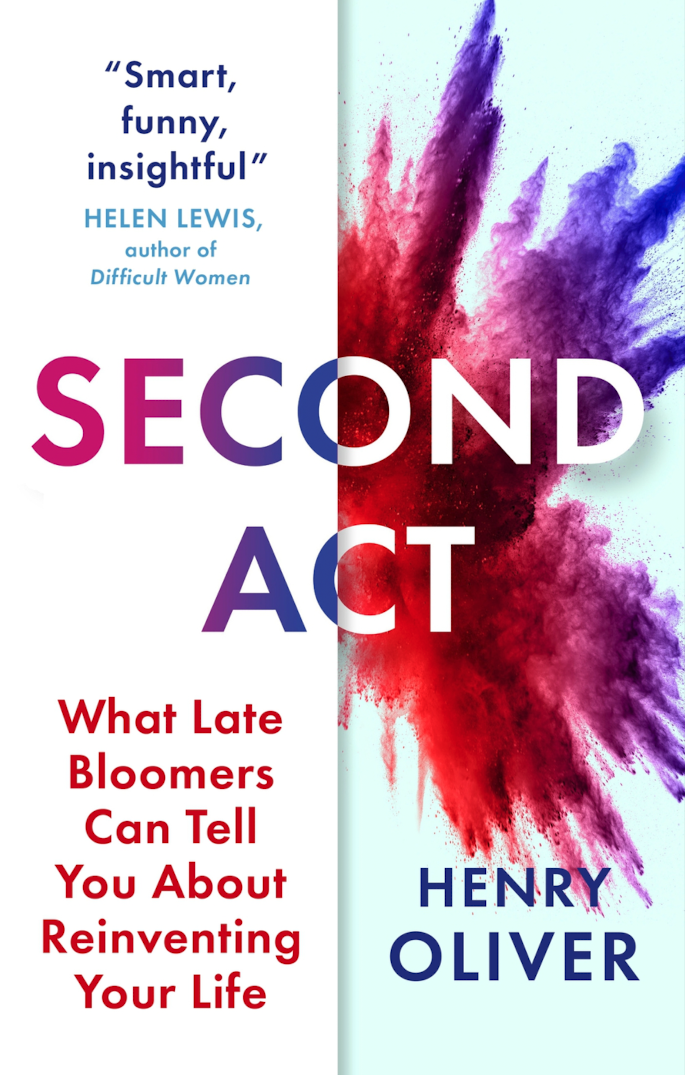
Second Act by Henry Oliver
Format: Kindle
Finished on 1/18/2025
What inspired me to read it? This post by Tyler Cowen got me interested, and then several podcasts with the author Henry Oliver like: this one, this one, this one, and this one. Oliver also has an excellent Substack.
Summary: Oliver's work transcends the traditional self-help platitudes. Instead he uses biographical accounts to hold a subtle mirror up to readers who suspect they may carry an arsenal of disparate, yet unmarketable talents. History, he reveals, is peppered with brilliant misfits – people who spent years collecting skills like others collect stamps, with no clear purpose in sight. These weirdos are like dormant volcanoes of potential, quietly accumulating pressure beneath the surface. Eventually, the perfect conditions are met that lead to an eruption: the misfit finally intersects with the right network, one that recognizes how their peculiar constellation of abilities might illuminate some previously unlit corner of the world. Yes, timing and connections play their crucial roles – but Oliver's key insight is that these "overnight" successes spent years in preparation for a moment they couldn't possibly have anticipated. A hopeful message for this blogger.
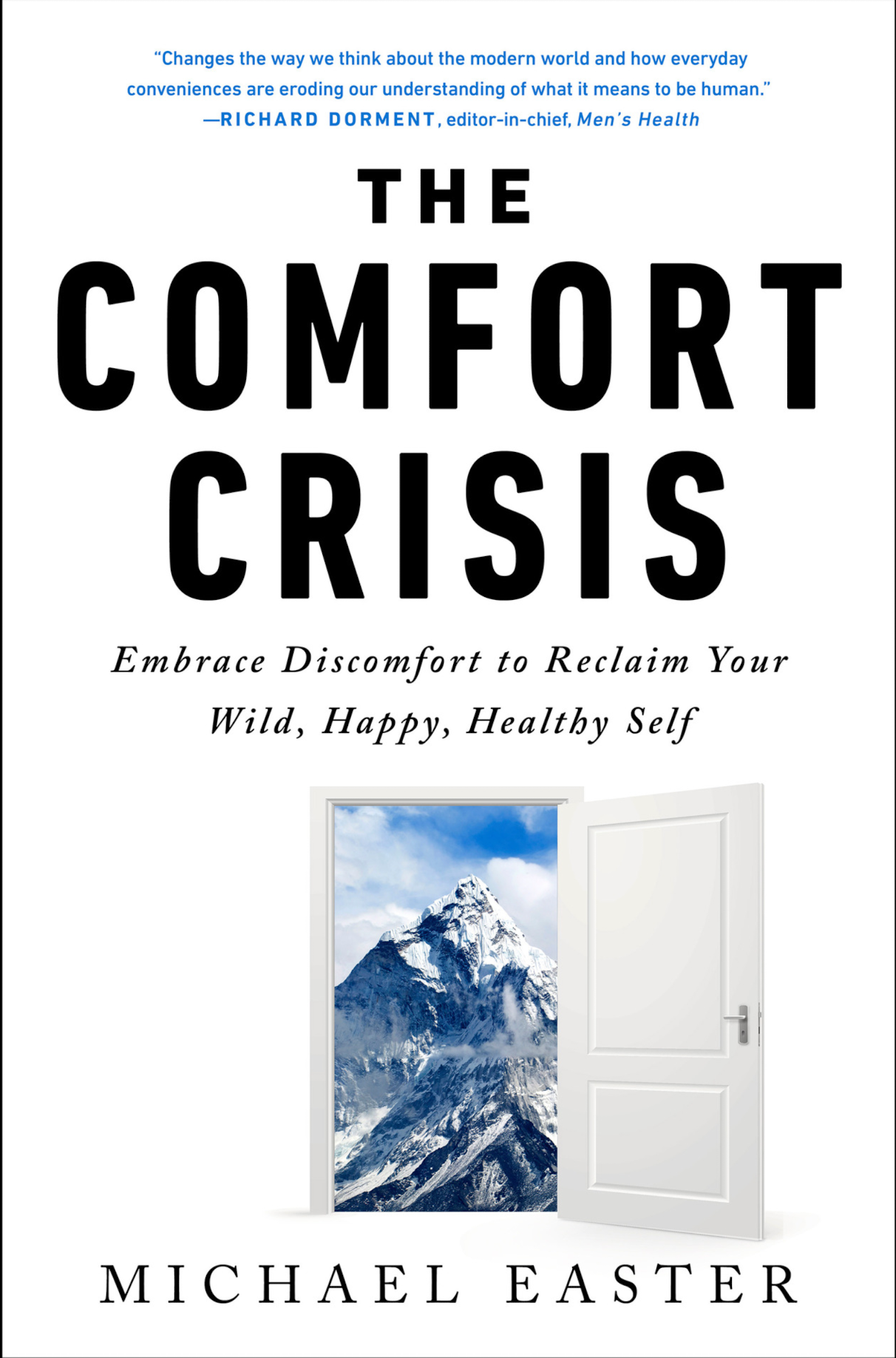
The Comfort Crisis by Micheal Easter
Format: Kindle
Finished on 1/24/2025
What inspired me to read it? This episode of the Deep Life with Cal Newport.
Takeaways: Chocked full o' practical advice. Provides rationale for why we should make our lives more physically (and therefore, mentally) challenging. Inspired by the book, I am in the process of forming two new habits:
1) Daily tracking of macronutrient consumption - tedious, but a foolproof method for maintaining weight loss: calories out must exceed calories in. No fad diet needed. I developed my own tracker on Google Sheets. I will gladly share it with any reader, just email me - stanrichardblog@gmail.com.
2) More unplugged outdoor walks. As Millie Pounds says, "Take out the pods." I blogged about this back in 2023, but didn't stick with it.
Rumination: There is a chapter where Easter travels to Bhutan to talk to a Buddhist scholar (khenpo) and the top bureaucrat (dasho) on Happiness (yes, they measure Gross National Happiness in Bhutan). According to the khenpo and dasho, the Bhutanese cultural form of Buddhism focuses heavily death and human impermanence (mitakpa). Their reasoning is that through daily acknowledgement of death, the Bhutanese–with 93.6% of the population considering themselves happy–ends up being happier than people from countries with much higher GDPs (the IMF ranked Bhutan 161 of 185 in GDP). Now, leaving aside the cynical takes on Bhutan’s Happiness metrics, these data sparked several questions about American lifestyle:
a) Is there anything extractable from Bhutanese culture and it’s Buddhist spirituality that doesn’t already fit into Ryan Holiday’s form of “Stoic philosophy” in America? Does genuine happiness require a more radical departure from modern American life – perhaps a rustication to smaller communities scaled to Dunbar's number, where ambition yields to spirituality?
b) A “crisis in meaning” now weaves it’s way through American discourse. Is lacking meaning at the root of American unhappiness? Shouldn’t a higher GDP inherently create more opportunities for “meaning-making”? If it does, then why are we not converting our prosperity into purposefulness? Do we require others to model meaning-making for us? Or does reliance on a model detract from authentic purpose? Are we caught in a positive feedback loop where the 'performance' of unhappiness has become its own cultural currency and led to contagion effects?
c) The khenpo's critique of the American checklist mentality (spouse, car, house, promotion...) raises an uncomfortable question: aren't Easter's prescriptions – meditation on impermanence, nature walks, physical challenges (mishogi), caloric tracking – simply another form of checklist? Have we merely substituted one form of striving for another?
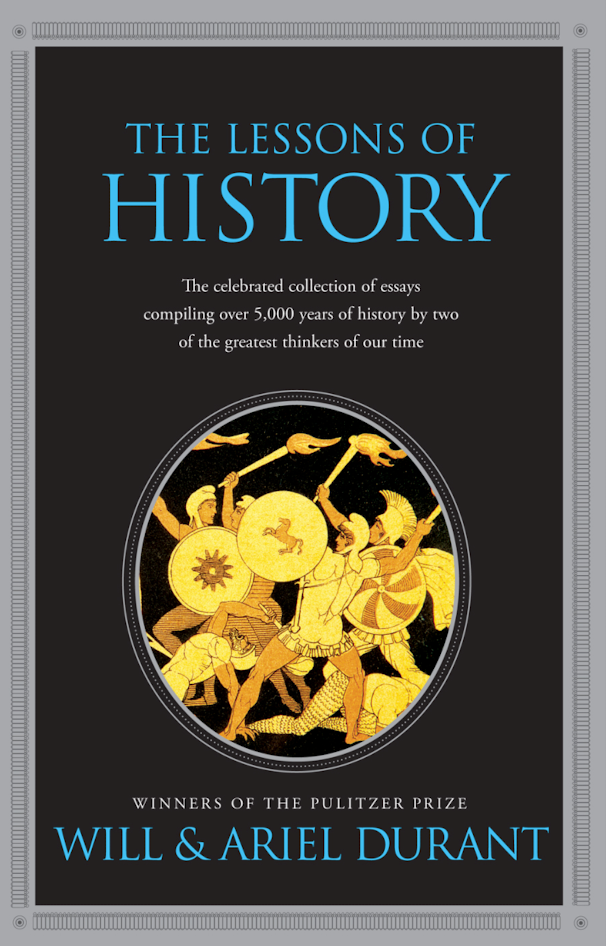
The Lessons of History by Will and Ariel Durant
Format: Kindle
Finished on 1/29/2025
What inspired me to read it? Morgan Housel references the Durant's work frequently. He also focuses on one line from The Lessons of History in this podcast episode. The line: "Learn enough from history to bear reality patiently, and respect one another's delusions."
Takeaway: Demonstrated with the quote above, the Durants are lapidary line-crafters. And every chapter contains at least one of their polished gemstones. I foresee myself referring back to this masterwork to steady myself against the outrage and doom that comes tumbling out of our culture each day.
Excerpts (emphasis is mine):
On Economics...
We conclude that the concentration of wealth is natural and inevitable, and is periodically alleviated by violent or peaceable partial redistribution. In this view all economic history is the slow heartbeat of the social organism, a vast systole and diastole of concentrating wealth and compulsive recirculation.
On "revolutions" in governmental systems...
There may be a redivision of the land, but the natural inequality of men soon re-creates an inequality of possessions and privileges, and raises to power a new minority with essentially the same instincts as in the old. The only real revolution is in the enlightenment of the mind and the improvement of character, the only real emancipation is individual, and the only real revolutionists are philosophers and saints.
On why John Lennon was delusional...
[Written from the perspective of a general]... A world order will come not by a gentlemen’s agreement, but through so decisive a victory by one of the great powers that it will be able to dictate and enforce international law, as Rome did from Augustus to Aurelius. Such interludes of widespread peace are unnatural and exceptional; they will soon be ended by changes in the distribution of military power. You have told us that man is a competitive animal, that his states must be like himself, and that natural selection now operates on an international plane. States will unite in basic co-operation only when they are in common attacked from without. Perhaps we are now restlessly moving toward that higher plateau of competition; we may make contact with ambitious species on other planets or stars; soon thereafter there will be interplanetary war. Then, and only then, will we of this earth be one.”
And, finally, a retort to measuring "happiness" as a form of progress...
But perhaps we should first define what progress means to us. If it means increase in happiness its case is lost almost at first sight. Our capacity for fretting is endless, and no matter how many difficulties we surmount, how many ideals we realize, we shall always find an excuse for being magnificently miserable; there is a stealthy pleasure in rejecting mankind or the universe as unworthy of our approval. It seems silly to define progress in terms that would make the average child a higher, more advanced product of life than the adult or the sage—for certainly the child is the happiest of the three.
Note: I used the free Claude 3.5 Sonnet as an editor for several portions of this blog.
